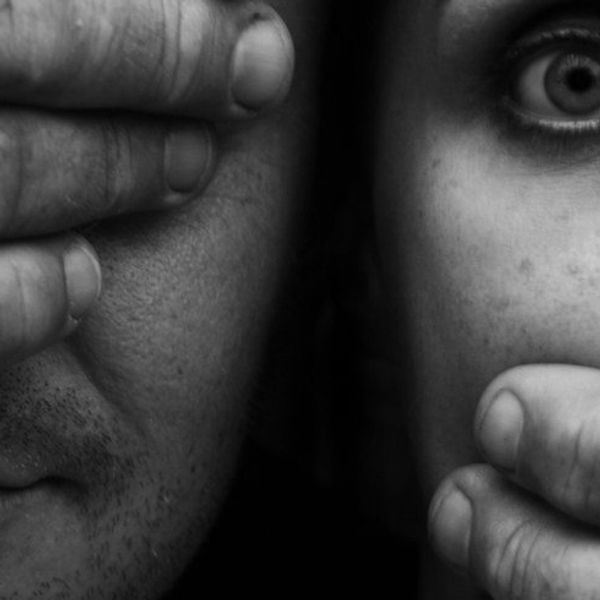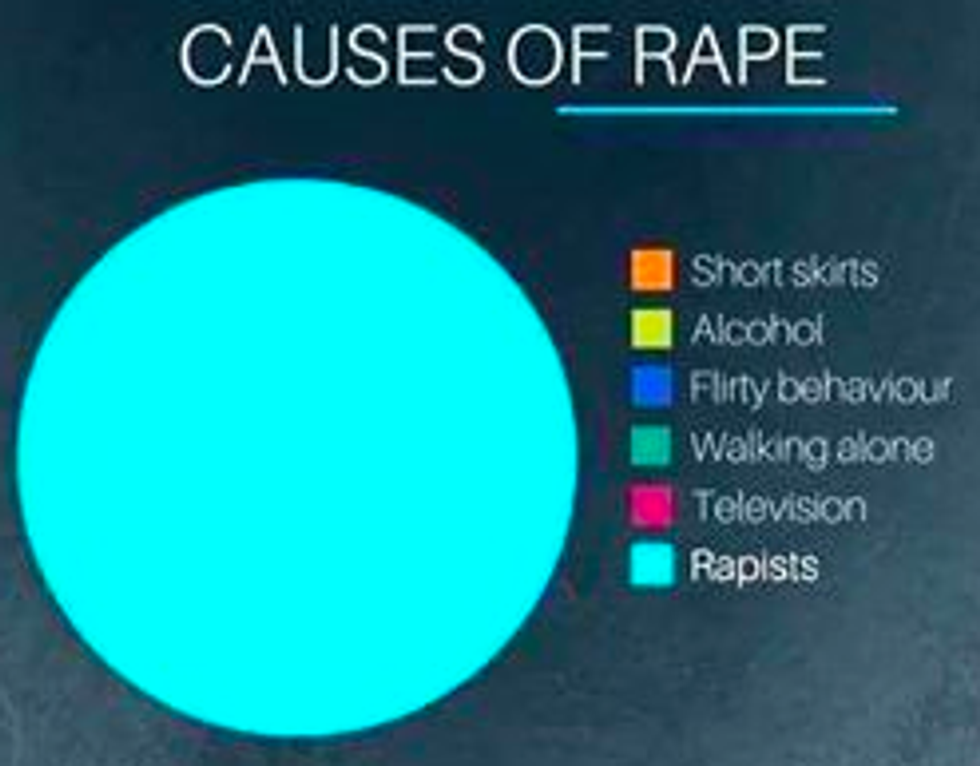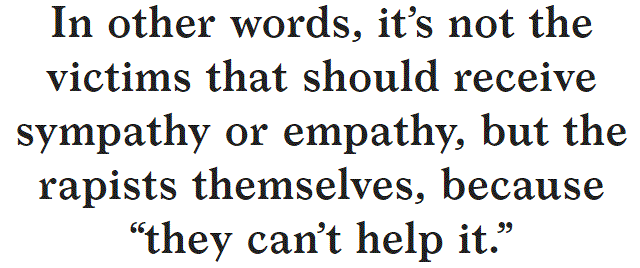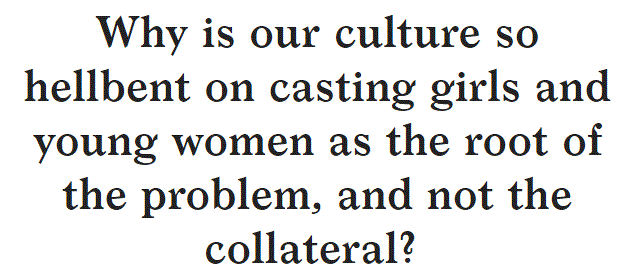The first thing sexual assault victims get asked is "what were you wearing?" And that baffles me. We live in a society where clothes are socially constructed. Women who tend to wear less clothes also tend get more Instagram likes. Those same women later get sexually assaulted and the first question always relates to their outfits. And guess who's asking what they were wearing? The same people liking their half naked pictures.
It is absolutely absurd that sexual assault is blamed on the victims clothing. How absurd would it be to ask the rapist sitting in the jail cell "well, what were you wearing? Oh, basketball shorts? Yikes." The foundation of rape culture heavily relies on victim blaming. People have a preconceived notion that the victim of the crime is the one who should hold all responsibility and that it was their vulnerability and state of consent (or, lack thereof) is an irrelevant factor.
In most high-profile cases, the victim comes face to face with the assailant in a heated courtroom battle. Most of these cases are the ones that make their way to the top of the food chain in the Title XI section of college campuses. More often that not, the case boils down to: "what did the victim do to provoke the assailant?" This is often answered by blaming the victims revealing clothing. Such mentality trickles down from universities to high schools and middle schools where we see a stricter dress code for teenage girls. These rules often back their claims by saying that "shoulders and bra straps are a distraction to the male classmate causing him to get bad grades and act out." These dress-codes are funny, however. I am a college senior and never once has a male classmate been unable to pay attention in lecture because of my short skirt or visible bra straps. It all goes back to teaching women to hide their sexuality in public and goes back to the age old notion that men want a "lady in the streets but a freak in the sheets."
Why are we so quick to jump on the victim blaming train, then? Why do we feel the need to force women to cover up, protect themselves, and learn how to not get raped rather than teaching young men not to rape? Our society is so focused on masculinity. Everywhere we go, we see it. Billboards for hospitals that feature the good-looking male doctor. Teaching men to simply control their "urges" would be stripping them of their masculinity.
Imagine for a second that we lived in a world where the roles were reversed. Imagine a young man and a young woman sitting in a courtroom. The woman was being accused of rape and the man was the victim. He sat on the opposite side of the room as her, shaking in fear that she would get to walk free. Her lawyer begins with his opening sentence: "My client is innocent. She was only acting on her sexual urges which were brought on by this young man right here. That night, he was wearing skinny jeans and a v-neck t-shirt. She could see his chest hairs and could not help herself." It sounds silly, right? Because it is. It makes no sense to ask what the victim was wearing. It is simply another way to victim blame created by the patriarchal system of politics.
The system of victim blaming can only be dismantled if we stop demanding that the victims earn penance for their lack of consent.
























